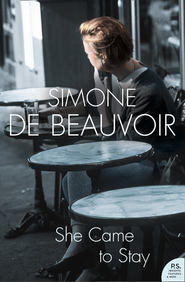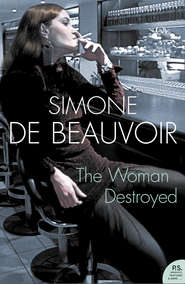По всем вопросам обращайтесь на: info@litportal.ru
(©) 2003-2024.
✖
The Mandarins
Автор
Год написания книги
2018
Настройки чтения
Размер шрифта
Высота строк
Поля
‘Yes. I’ve been wanting to ask your advice about that for some time now. Should I really continue to turn my back on him so stubbornly?’
‘But my God! The way you were talking about him last year!’ Henri said, surprised.
‘Because at that time, I thought he had denounced Rosa. But he convinced me he had no part in it; everybody knew she was Jewish. No, my father was involved in “economic” collaboration, which is bad enough. But after all, he’s getting old, and they’re going to make him stand trial, and it’s almost certain he’ll be convicted …’
‘You’ve seen him again?’
‘Once. And since then he’s sent me several letters, letters that rather upset me, I must admit.’
‘If you feel like making up with him, you’re perfectly free to do so,’ Henri said. ‘But I always thought you got along so badly?’ he added.
‘When I first met you, yes.’ Lambert paused a moment and then continued with some effort. ‘He raised me, you know. I believe that in his own way he liked me a lot; only you could never disobey him.’
‘Before you got to know Rosa, you’d never disobeyed him?’ Henri asked.
‘No. That’s what made him furious; it was the first time I ever went against him,’ Lambert said. He shrugged his shoulders. ‘I suppose it suited me to believe he denounced her; that way, there wasn’t any problem. I’d have killed him with my own hands at the time.’
‘But what made you suspect him?’
‘Some friends of mine put the idea in my head – Vincent among others. But I talked to Vincent about it again; he has absolutely no proof, not a shred. My father swore on the grave of my mother that it was a lie. Now that I’ve cooled off and can look at things objectively again I’m convinced he could never have done a thing like that. Never.’
‘It would have been a ghastly thing to do,’ Henri said. He hesitated for a moment. Now Lambert hoped that his father was innocent, just as two years earlier, without any proof, he had hoped he was guilty. And there was probably no way of ever knowing the truth. ‘Vincent likes to think of himself as a cloak-and-dagger character,’ Henri said. ‘Listen, if you no longer have any reason to suspect your father, if personally you don’t bear him any grudge, it’s not for you to act as his judge. Go and see him, do as you see fit, and don’t worry about what anyone else has to say.’
‘Do you really think I can?’ Lambert asked.
‘Who’s to stop you?’
‘Don’t you think it would be a sign of infantilism?’
Henri gave Lambert a surprised look. ‘Infantilism?’
Lambert blushed. ‘I suppose I mean cowardice.’
‘Not in the least. It’s not cowardly to live as you see fit.’
‘Yes,’ Lambert said, ‘you’re right. I’ll write to him.’ Gratefully, he added, ‘I’m glad I talked to you about it.’ He dipped his spoon into the small saucer of pink, shimmering gelatine. ‘You could really help us so much,’ he murmured. ‘Not only myself, but a lot of other young people who are in the same boat.’
‘Help you in what way?’ Henri asked.
‘You have the sense of what is real. You ought to teach us how to live for the moment.’
Henri smiled. ‘Formulating a set of principles, an approach to life, doesn’t exactly enter into my plans.’
His eyes shining, Lambert looked up at Henri. ‘Oh, I stated that badly. I wasn’t thinking of a theoretical treatise. But there are things that you consider important, there are values you believe in. You ought to show us the pleasant things on earth. And you could also make it a little more livable by writing beautiful books. It seems to me that that is what literature should do.’
Lambert delivered his little speech in a single breath. It seemed to Henri that he had prepared it in advance and that for days he had been waiting for the right moment to get it off his chest.
‘Literature isn’t necessarily pleasant,’ he said.
‘But it is!’ Lambert said. ‘Even things that are sad become pleasant when they’re done artistically.’ He hesitated. ‘Maybe pleasant isn’t exactly the right word, but it’ll do.’ He paused again and blushed. ‘I’m not trying to dictate to you what you should write. Only you mustn’t forget that you are first and foremost a writer, an artist.’
‘I never do forget it,’ Henri said.
‘I know, but …’ Once more Lambert paused, seemed embarrassed. ‘For example, your series on Portugal is very good, but I remember those pages you once wrote on Sicily. It makes you feel a little sad not to find anything like them in what you’re writing now.’
‘If you ever go to Portugal, you won’t feel very much like describing pomegranates in bloom,’ Henri said.
‘I wish you’d feel that way again,’ Lambert said urgently. ‘Why not? You certainly have the right to stroll along the seaside without worrying about the price of sardines.’
‘But the fact is that I couldn’t,’ Henri replied.
‘After all,’ Lambert continued vehemently, ‘we fought in the Resistance to defend the individual, to defend his right to be himself and to be happy. It’s time now to reap what we sowed.’
‘The trouble is that there are several hundred million individuals for whom that right still doesn’t exist,’ Henri said, shrugging his shoulders. ‘I think it’s precisely because we began to take notice of them that we can no longer stop.’
‘Then everybody has to wait for the whole world to be happy before trying to be happy?’ Lambert said. ‘And art and literature must be put off until that golden age? It’s now, right now, that we need them!’
‘I don’t say one has to stop writing,’ Henri replied. He paused; Lambert’s reproach had touched a sore spot. Yes, there were a great many other things to be said about Portugal, and it was with no little regret that he had pushed them aside. An artist, a writer – that’s what he wanted to be, that’s what he had to keep in mind at all times. Long ago he had made great promises to himself; now was the time to keep them. Precocious triumphs, a too-opportune book, too highly praised – he wanted something else more than that. ‘As a matter of fact,’ he resumed, ‘I’ve just got started on the kind of novel you’ll like. Just a story, in which I’ll write what I please for my own pleasure.’
‘Really?’ Lambert said, his face brightening. ‘Have you done very much? Is it going well?’
‘Beginnings, you know, are always thankless. But it’s coming along!’ Henri replied.
‘You don’t know how happy I am to hear that!’ Lambert said. ‘It would be a damned shame if you let yourself be eaten up!’
‘I won’t let myself be eaten up,’ Henri said.
‘How’s your light novel coming along?’ Paula asked.
‘It’s coming,’ Henri replied.
She stretched herself out on the bed behind him, and he felt her eyes studying the back of his neck. She made him feel uneasy, but it would have been unkind of him to chase her out. After all, eyes make no noise. He tried to concentrate on the novel. During the past month, he had made several decisions and had finally resigned himself to setting the story in 1935. Perhaps it was a mistake – for days now, sentences had been withering at the tip of his pen.
‘Yes, it is a mistake,’ he said to himself decisively. He had wanted to write about himself. Well, he had nothing in common with the person he had been in 1935. His political indifference, his curiosity, his ambition, all that stubborn insistence on individualism – how quickly it passed, how foolish it was! It presupposed a future without obstacles, with guaranteed progress, the immediate brotherhood of man, and peace everlasting. Above all it presupposed selfishness and thoughtlessness. Oh, he would no doubt have been able to find excuses enough. But he was writing this book in order to try to tell the truth about his life, not to explain away its faults. ‘It has to be written in the present,’ he decided. He reread the last few pages. It was a pity to think that the past was going to be finally buried – his arrival in Paris, his first meetings with Dubreuilh, the trip to Djerba. ‘I’ve lived them; that should be enough,’ he said to himself. But if you take that position then the present is also enough, life itself is enough. And it obviously wasn’t, for he had to write to feel himself completely alive. Too bad then. In any case you can’t salvage everything. The question was to know what to say about himself, about himself today. ‘How far have I come? What do I want?’ It was funny – if you’re so set on expressing yourself, it’s because you feel you’re unique. And he was not even able to say in what way he thought he was! ‘Who am I?’ He did not ask himself that question in the past; then it had always been the others who were defined, had limits. But not he. His books and life were still ahead of him. It enabled him to dismiss all adverse criticism, and from the heights of his future works to look on everyone, even Dubreuilh, with a little condescension. But now, he had to admit to himself that he was a mature man: young people treated him as an elder, adults as one of them, and some even treated him with respect. Mature, bounded, finite, himself and no one else, nothing but himself. But who was he? In a way, his books would ultimately decide; but on the other hand, he had to know the truth about himself in order to write them. At first sight, the meaning of those months he had just lived through was quite clear, but if you looked more closely everything became hazy. Helping people to think straight, to live better lives – was his heart really set on it, or was it only a humanitarian daydream? Was he really interested in what happened to others, or only in soothing his own conscience? And literature? What meaning did it now hold for him? There’s nothing more abstract than wanting to write when you have nothing urgent to say. His pen hung motionless above the paper and he thought irritably that Paula was there behind him, watching him not write.
Вы ознакомились с фрагментом книги.
Приобретайте полный текст книги у нашего партнера:
Приобретайте полный текст книги у нашего партнера:







